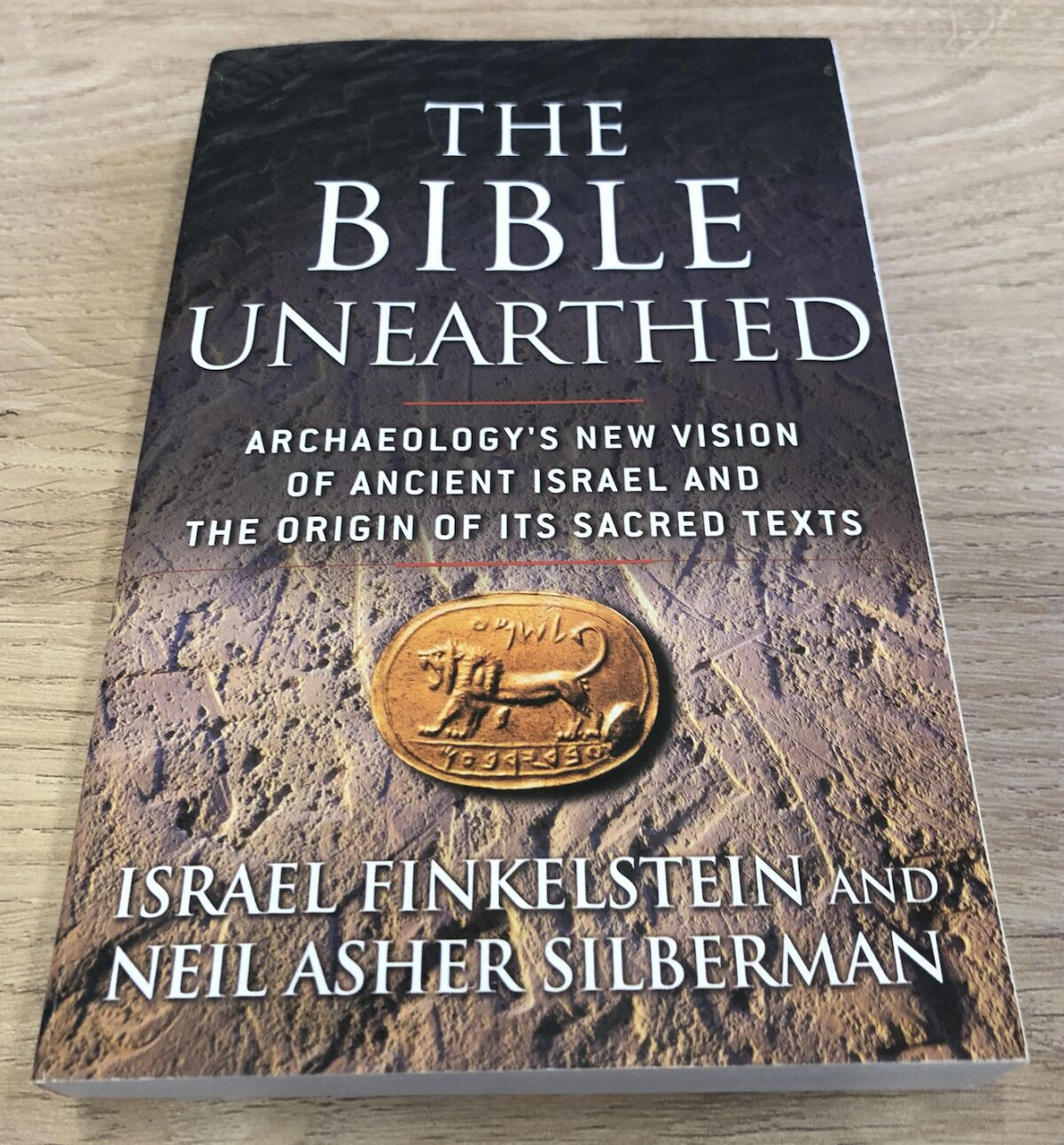Does Joshua’s Genealogy Contradict Moses’s?
Prof. Israel Finkelstein and Neil Asher Silberman’s book, The Bible Unearthed (first published in 2001), has gained quite a bit of notoriety in the world of biblical archaeology. From breathless approval (“The boldest and most exhilarating synthesis of the Bible and archaeology in fifty years”—archaeologist Prof. Baruch Halpern) to breathless disapproval (“Their treatment of the exodus is among the most factually ignorant and misleading that this writer has ever read”—Egyptologist Prof. Kenneth Kitchen), the book is essentially a summary of the authors’ minimalist views of the historicity of the Bible, opining that the Bible’s date of authorship (and what they see as its agenda-driven ideology) fits best within the eighth and seventh centuries b.c.e. They write that the Bible is “not a miraculous revelation, but a brilliant product of the human imagination.”

Recently, I’ve been going through the text in closer detail. Interpretations aside, it’s interesting to note various points used to make a case for a late date of composition that have since had to be revised due to recent archaeological discoveries (such as the antiquity of Edomite statehood).
Certain conclusions within the book are necessarily not anchored to archaeological discoveries, but are meant to make a case against Bible historicity through the “power of logic and reason.” As page 11 reads: “The power of logic and reason applied to the text of the holy scriptures [by more modern scholars] gave rise to some very troubling questions about the Bible’s historical reliability.”
One such “troubling” thing highlighted is the “discrepancy” in generational information given for Moses and Joshua. As we will cover in this brief article, how much of a “discrepancy” is there, really? Is it impossible to harmonize the genealogies of Joshua and Moses?
‘Hardly a Minor Discrepancy’
On page 35, Finkelstein and Silberman offer certain problems they see with the biblical text:
[T]he later genealogies that traced Jacob’s descendants were confusing, if not plainly contradictory. Moses and Aaron, for example, were identified as fourth-generation descendants of Jacob’s son Levi, while Joshua, a contemporary of Moses and Aaron, was declared to be a twelfth generation descendant of Joseph, another of Jacob’s sons. This was hardly a minor discrepancy.
The biblical passages here in question refer to Moses’s four-generation genealogy from Levi, as described in Exodus 6:16-20 (among other parallel passages), and Joshua’s 12-generation genealogy from Joseph through Ephraim, described in 1 Chronicles 7:20-27.
A knee-jerk reaction might be that given Chronicles is one of the latest books of the Hebrew Bible (traditionally ascribed to Ezra, during the Persian period), this separation in period and writing could explain such a wide and perhaps unwitting discrepancy. Yet this could hardly be the case—Moses’s four-generation genealogy is also referenced here, barely a chapter before Joshua’s, in 1 Chronicles 6:1-3 (1 Chronicles 5:27-29 in the jps).
Several genealogies within the Torah and book of Joshua describe various Exodus individuals of a fourth, fifth, or sixth generation coming out of Egypt. It seems that these are the more ballpark figures for those coming out of Egypt. (Though some would argue that in ancient records—including in certain biblical genealogies—it was not strange or unusual to “skip” relatively insignificant figures in genealogies, and thus this could have been the case here.) Nevertheless, at face value, should we discard the much longer, 12-generation genealogy of Joshua as “hardly a minor discrepancy” against that of Moses?
Not So Fast
There are a couple of things to note here. The first is that Moses and Aaron came out of Egypt as already elderly individuals, aged 80 and 83, respectively (Exodus 7:7). Another key biblical point to consider is that Joshua, as one of the faithful spies of the Promised Land (together with Caleb), was spared the curse of death while wandering in the wilderness—a curse of death applied two years into the sojourn, to all aged 20 and upward (Numbers 14, Deuteronomy 2:14). So, Joshua must have been out of his teenage years at this time in order to have to be spared from the curse.
The only chronological information we have about Joshua is that he was 110 years old when he died. We know from Joshua 14:7 that his compatriot Caleb was 40 years old when he was sent as a spy (Joshua 14:7). Still, the language of this chapter, in which Caleb persuades Joshua to let him lead a charge against a certain territory in spite of his old age, implies that Joshua was most likely younger, if not by quite a margin, than Caleb. Indeed, Exodus 33:11 calls Joshua a “young man” at the time of the giving of the Law at Mount Sinai. Thus, conceivably Joshua was likely between the ages of 20 and 30 at the time of the Exodus. (Compared, again, to the 80-year-old Moses and 83-year-old Aaron.)
The Bible does not give specifics about the ages of begettal of Moses’ or Joshua’s ancestors. Regarding Moses, however, at least the lifespans of his ancestors are given—all comparatively long (137, 133 and 137).
The standard interpretation for the length of the Israelite sojourn in Egypt (as recognized in Judaism, and at least several branches of Christianity) is that it lasted about 210 to 215 years from the descent of Jacob and his family to the Exodus (within a wider 400- and 430-year sum, starting from the time of God’s promise to Abraham—as described in Genesis 15, Exodus 12:40 and Galatians 3:16-17; see the following article for a detailed examination of this subject). Given the long lifespans mentioned above, it is not hard to see how a fourth generation—and a specifically elderly fourth generation—could come out on the other side of these 215 years.
But by the same token, it is not hard to see how a twelfth generation—and a young twelfth generation at that—could also come out on the other side.
Assuming for the “young man” Joshua a round age of 20 at the time of the Exodus, and the fact that Ephraim, his 11th-generation ancestor, was already on the scene at the time of Jacob’s descent into Egypt, this would leave us with nine generations between Ephraim and Joshua to fit within a total 195-year period (215 - 20 = 195). This gives us around 20 years per generation—nothing out of the ordinary here.
Conversely, for Moses, 215 - 80 = 135 years minimum to fit the two generations between himself and the patriarch Levi. Splitting the difference means that each generation would have been conceived at a minimum age in the late 60s—an age of begettal that is hardly blinked at in the Bible genealogies, and one that is not even remarkable today.

A case in point for these two very differently-spaced, yet concurrent lineages can be made from two modern English families. Example one is the famous business magnate and former Formula One chief executive Bernie Ecclestone, who in 2020—just weeks before his 90th birthday—welcomed a fourth child with his third wife. A single generational gap, here, of 90 years! Compare this to the opposite end of the spectrum, over roughly the same time period, with the relatively recent news out of England that “[a]nother British family have become members of the six-generation club”—with 96-year-old Lily Fitzgerald welcoming a great-great-great grandson. In the case of the former example, 90 years from one generation to the next; in the case of the latter, 96 years from one generation to the sixth.
Other examples could be given, such as the seven living generations the famous Bunge family from the United States had at one time; or, on the other end of the spectrum, the still-living grandsons of 10th U.S. President John Tyler, who was born in 1790 (see video below). Three generations spanning nearly two and a half centuries—almost the entire history of the United States.
https://www.youtube.com/watch?v=dGiL2PgC17A&ab_channel=CBSEveningNews
So is it accurate to characterize Moses’ four generations against Joshua’s 12, over the course of two centuries, as “hardly a minor discrepancy” elucidated by the “power of logic and reason”?
Hardly.